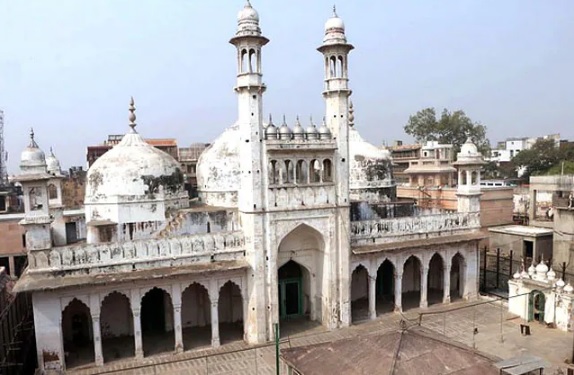
Allahabad High Court’s Ruling Today: Permission Granted for Hindu Prayers in Gyanvapi Cellar
In the basement of Varanasi’s Gyanvapi mosque, there are four ‘tehkhanas’ (cellars), with one of them still under the ownership of the Vyas family.
Today, the Allahabad High Court rejected a petition that contested the Varanasi district court’s ruling permitting Hindu prayers in one of the cellars of the Gyanvapi mosque.
On January 31, the Varanasi district court decreed that a priest is permitted to conduct prayers in the southern cellar of the Gyanvapi mosque.
The verdict was issued in response to the plea filed by Shailendra Kumar Pathak, asserting that his maternal grandfather Somnath Vyas had been offering prayers until December 1993.
Mr. Pathak had made a request to be permitted to enter the tahkhana and resume pooja, citing his status as a hereditary pujari.
In the basement of the mosque, there are four ‘tehkhanas’ (cellars), and one of them remains under the ownership of the Vyas family.
The Varanasi district court’s decision followed the public release of an Archaeological Survey of India (ASI) report on the mosque complex.
The ASI survey, commissioned by the court in connection with a related case, indicated that the mosque was built during Aurangzeb’s reign atop the remnants of a Hindu temple.
The mosque committee rejected the petitioner’s account, asserting that no idols were present in the cellar, thereby negating the possibility of prayers being conducted there until 1993.
Within hours of the Supreme Court declining to hear its plea against the Varanasi district court order and directing it to seek relief from the high court, the committee approached the high court on February 2.
Following the hearings from both parties on February 15, the Allahabad High Court had reserved its verdict.




